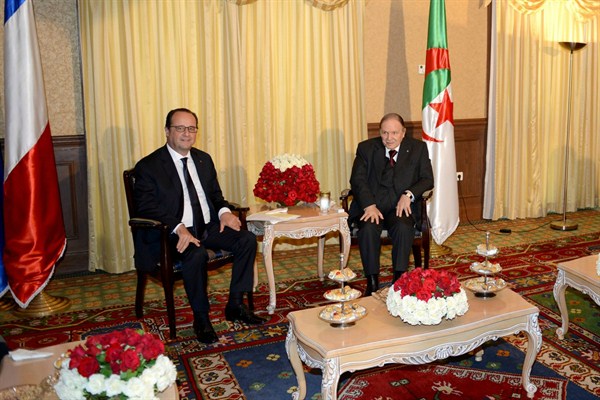The day before Tuesday’s terrorist attacks in Brussels, a European Union representative visiting Algiers told Algerian officials that their country is “pivotal” in the fight against terrorism. He also praised Algeria for political changes that he called “an improvement of the situation.” The former is undoubtedly true. The latter was probably just a diplomatic nicety.
The “situation” in Algeria remains as murky as ever. An al-Qaida terrorist attack against a gas facility last week prompted foreign firms to pull expatriate workers. Almost simultaneously, a police raid in Brussels targeted an Algerian citizen and member of the so-called Islamic State, in whose apartment police found the clues that led to the capture of Salah Abdeslam, the lone surviving assailant in the Paris attacks of last November.
The fact is that Algeria’s situation is characterized by multiple levels of visible, opaque and downright invisible political doings. While Algerian foot soldiers are playing a major role in the competition between al-Qaida and the Islamic State, suit-and-tie politicians in Algiers continue to play an enigmatic and potentially dangerous game.

